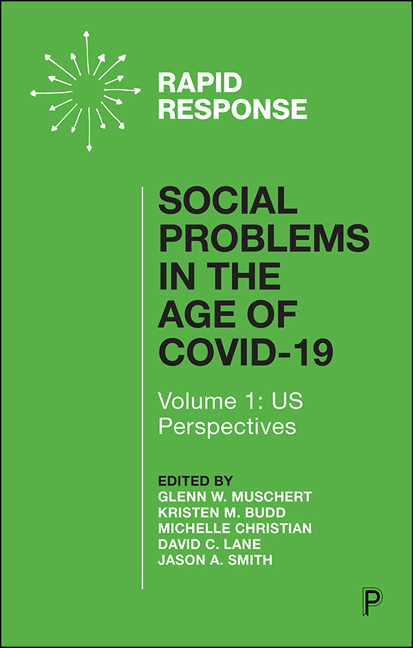3 - Incarceration during COVID-19: Jail Shouldn’t be a Death Sentence
Published online by Cambridge University Press: 23 March 2021
Summary
The Problem
The nation's thousands of jails originate in White supremacy and oppression—a role that has continued with the rise of mass incarceration. The spread of COVID-19 behind bars has magnified both the public health and social consequences of jails, and also the lack of timely, transparent data about who is behind bars and what they are enduring. The pandemic has shown the urgency of defunding jail construction, investing in true public health and safety measures, and mandating transparency from local authorities.
Scholars document a troubled history. Starting in the antebellum South, sheriffs and other local officials used jails to control poor White people charged with vagrancy. After the Civil War, jails became central to convict leasing—the wrongful arrest of formerly enslaved Black people by sheriffs, who sold them to corporations and plantations.
Jails still maintain their function of racialized social control, and are now central to mass incarceration. One in four incarcerated people in the world reside in the US, one third of whom are in jail. These institutions have a deep reach into communities; according to the Bureau of Justice Statistics, people are booked into jails 11 million times each year, nearly 18 times the number of prison admissions. In Divided Justice: Trends in Black and White Jail Incarceration (Subramanian, Riley, and Mai, 2018), researchers find the justice system jails Black people at 3.6 times the rate of White people, and Latinx communities are both overcriminalized and persistently miscounted in jail populations.
Prior to the pandemic, a jail construction boom was underway, particularly in smaller cities and rural areas, according to the Vera Institute of Justice (hereafter “Vera”). That happened in part because jails have become default public health and social service providers, a process that advocate James Kilgore calls “carceral humanism.” However, jails cannot play those roles well; public health experts say incarceration can exacerbate substance use disorders and mental illness, and leads to other consequences, including homelessness, preterm births, and overdose deaths.
COVID-19 presented two major challenges to the status quo. First, the danger of coronavirus spurred rapid jail population reductions. Based on incomplete data, the jail population decreased by a median of 30%, with some jails cutting their populations by 70% or more.
- Type
- Chapter
- Information
- Social Problems in the Age of COVID-19 Vol 1Volume 1: US Perspectives, pp. 25 - 34Publisher: Bristol University PressPrint publication year: 2020



